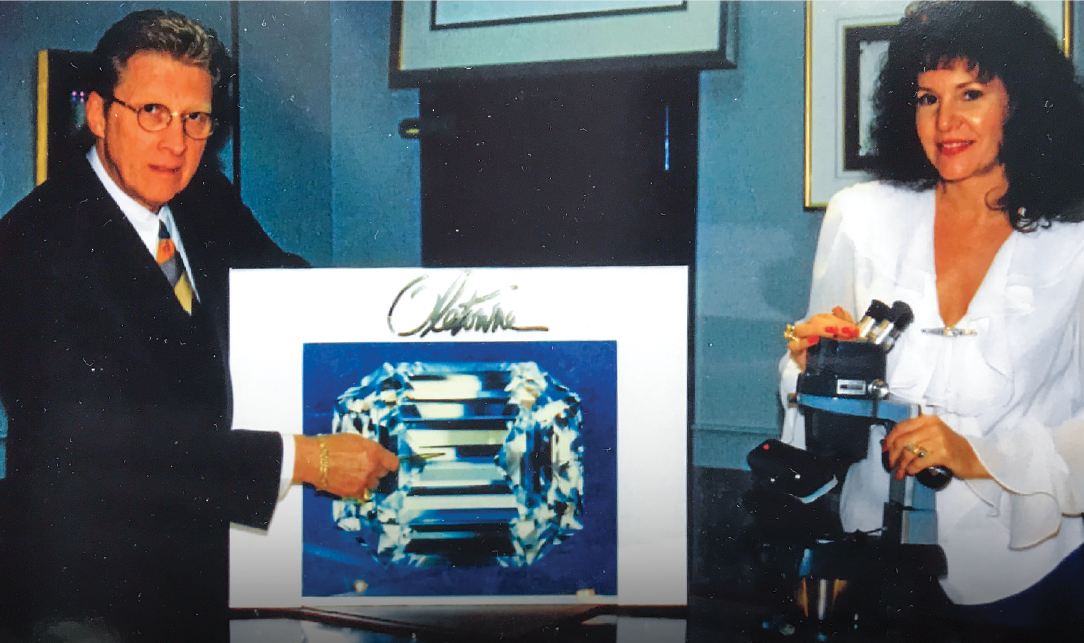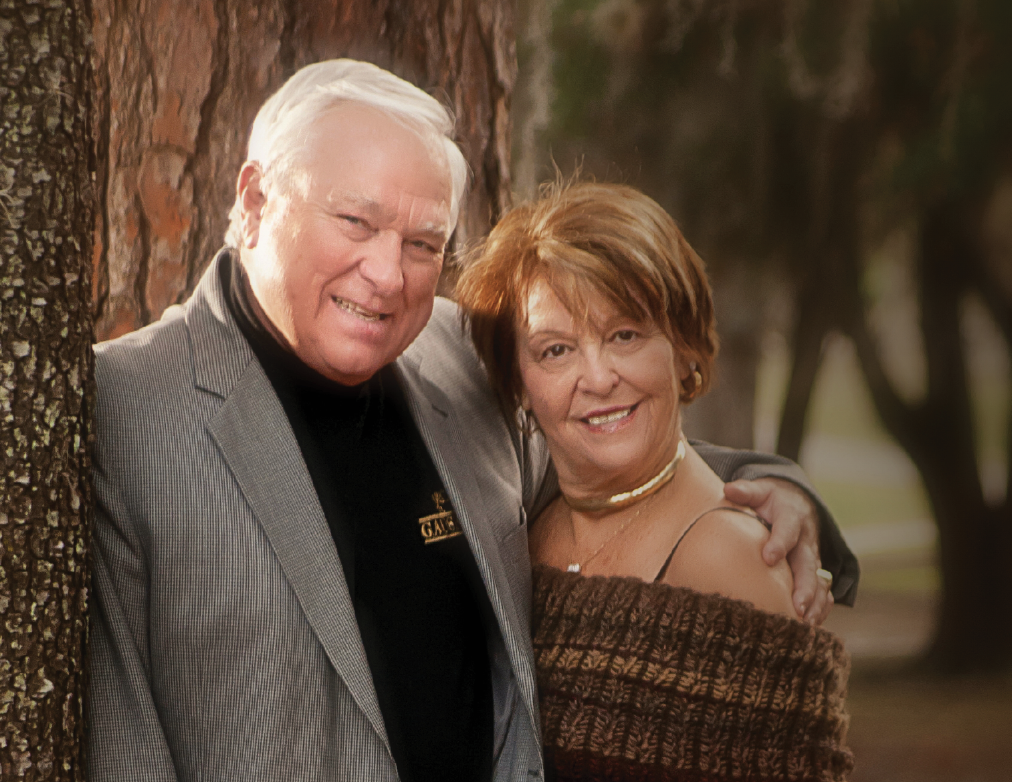It’s funny how, when you ask people what makes a good boss, they’ll probably tell you about their worst one. It’s human nature to remember every insult and injury from the insufferable jerk who made going to work a miserable experience and forget the kind, mentoring soul who quietly boosted your confidence.
Another way to look at it (especially around Valentine’s Day): Enduring a horrible boss is the workplace equivalent of having to kiss a lot of frogs before finding your prince or princess. When we asked the INSTORE Brain Squad to tell us about your best bosses, many of you shared tales of your worst. One person wrote:
“The boss who taught me the most was the worst boss I ever had! Actually, two of them. The first taught me how not to treat people, customers and fellow employees. He was a real snake, gloated over cheating people. The second taught me how not to run a jewelry business. I learned by their mistakes and feel that I am more successful now having worked for them.”
It’s true that toxic bosses from the past can offer useful lessons to small-business owners. As Robert Sutton, author of Good Boss, Bad Boss says, “It is a lot easier to learn from that guy than to be that guy.” (He also quotes Eleanor Roosevelt, who said “Learn from the mistakes of others. You can’t live long enough to make them all yourself.”) But many ineffective bosses are good people who haven’t had positive examples of how to lead and manage people. This is especially true in small retail businesses, where the owner becomes a boss by default.
The first step to being a great boss is realizing there’s always room to improve. One great way to do it? Learn from other retailers’ experiences—check out our accompanying profiles of some especially memorable bosses—and learn from writers and thinkers who’ve studied how smart bosses inspire their teams to produce great results. Here are some of their top tips.
1. Make Time for Every Employee
As the boss, you are kind of a big deal. “That’s why an employee who wants to talk about something that seems inconsequential may just want to spend a few moments with you,” says Jeff Haden, who writes about how great bosses got that way. “When that happens, you can blow the employee off, or you can take the chance to inspire, reassure and motivate.”
Advertisement
2. Let people be themselves
Bosses often get their rudest awakening when they realize employees have their own ways of doing things, says Marcus Buckingham, author of First, Break All The Rules: What The World’s Greatest Managers To Differently. If you force people to follow your playbook, then two things happen: “They become resentful — they don’t want to do it. And they become dependent — they can’t do it. Neither of these is terribly productive.”
3. Rescue Mission
Your greatest success may come from mentoring your least promising employee, Haden adds. “Your remarkable employees don’t need a lot of your time; they’re remarkable because they already have these qualities,” he notes. “If you’re lucky, you can get a few percentage points of extra performance from them. But a struggling employee has tons of upside; rescue him and you make a tremendous difference.”
4. Steady On
A Google-commissioned study of more than 10,000 employee observations showed human interaction, not technical skills, was the best indicator of success for bosses. As Adam Bryant explained in his New York Times article, “Google’s Quest to Build a Better Boss,” the highest-rated managers “were even-keeled bosses who made time for one-on-one meetings, who helped people puzzle through problems by asking questions, and who took an interest in employees’ lives and careers.”
5. Build Trust
Counterintelligence expert Robin Dreeke has co-written a book called The Code Of Trust with five rules for leadership: suspend your ego, be nonjudgmental, honor reason, validate others and be generous. Dreeke adds that it’s important for bosses to identify goals and priorities, but then let go of them and work to understand what other people value, because doing so builds trust. As Dreeke says on a Knowledge@Wharton podcast, “This is my manual on how not to be the person I was born to be. This is my manual on how to overcome that Type-A hard charger that just barrels forward and ruins relationships because they think it’s all about them.”
6. Be Memorable
In her book Work Happy: What Great Bosses Know, Jill Geisler shares three things employees never forget: a boss who apologizes when he or she is wrong (preferably in public, if that’s where the earlier criticism took place); a boss who reacts to a worker’s boneheaded errors with wisdom, knowing just how long to let people stew over their own mistakes; and bosses who respond to personal achievements and losses (big and small) with encouragement or empathy. On the flip side, she lists three things employees never forgive: a lying boss, a boss who takes credit for the staff’s work or ideas, or a boss who behaves differently around superiors than around the troops.
7. See Yourself Through Their Eyes
Stanford University professor Robert Sutton has made a career writing about how to survive difficult people in the workplace and in life. After he published his book The No Asshole Rule: Building A Civilized Workplace And Surviving One That Isn’t, he received tons of stories about difficult bosses, enough to fill a sequel (which eventually came out last year in The Asshole Survival Guide: How To Deal With People Who Treat You Like Dirt). But he heard about effective bosses, too, people who took “diverse and intertwined steps to create effective and humane workplaces.” He suggests that the best bosses pay close attention to how their employees see and hear them, from facial expressions to tone of voice.
Advertisement
8. Encourage Feedback
You need to know what your employees are thinking, but they may not be willing to tell you in their employee review or even in the more casual one-to-one meetings that you’re hopefully having with them at regular intervals. Whether it’s a suggestion box in the break room or a confidential survey or focus group facilitated by a third party, give your people opportunities to suggest ways you can improve as their boss. Then let down your defenses, and take their feedback seriously.
9. Chill Out
It’s true that passion can inspire performance, but if you’re always yelling at your employees, it’s worth asking whether your emotions are helping or hurting business. “Personally, I’m going to assume that successful screamers make it in spite of the screaming, not because of it,” writes Jay Goltz on The New York Times’ “You’re the Boss” blog.
10. Put People Before Goals
It’s good to have sales targets, but that shouldn’t be your primary focus. Without great employees, no amount of focus on goals and targets will ever pay off, says Jeff Haden. “It’s your job to provide the training, mentoring and opportunities your employees need and deserve,” he adds. “When you do, you transform the relatively boring process of reviewing results and tracking performance into something a lot more meaningful for your employees: Progress, improvement and personal achievement.”
11. Demythologize Crisis
We’re living at a time when “our institutions seem to be in serial meltdown,” says Elizabeth Samet, a professor of English at the United States Military Academy, in her introduction to Leadership: Essential Writings By Our Greatest Thinkers. “If we live in a world of crisis, we also live in a world that romanticizes crisis—that finds in it fodder for addiction to the 24-hour new cycle, multiple information streams and constant stimulation.” Sound familiar?
But humans cannot thrive in a state of constant turmoil, so do what you can to cultivate a low-drama life and workplace. Listen to music instead of the news or talk radio on your way to work. Eat well, get adequate sleep, exercise and take time to play—and help your employees do the same things. Researchers at the Wellness Institute at Cleveland Clinic found that a workplace-based stress management program boosted employee morale and vitality, with positive changes still evident a year later.
12. Unpack Your Power Trip
In a conversation with psychologist Ron Friedman at the Peak Work Performance Summit, author Dan Pink cited research showing that when we feel powerful, we’re less likely to see other people’s perspectives. That’s why it’s helpful to “dial down your feelings of power just a little bit” to see the world how your employees do.
Advertisement
13. Admit You Don’t Know It All
You had the vision and talent to launch your small business, but that doesn’t mean you naturally have the skills to be a great boss. It’s smart to look for mentors and seek opportunities for leadership growth. Writing on Bloomberg.com, Rebecca Greenfield profiles executive coach Ben Olds, who helps bosses learn to have difficult conversations, harness their emotions and just plain listen. Few people are beyond help. For Travis Kalanick, founder of Uber, “Olds would want to understand what provokes him. To find that out, he would talk through some regrettable incidents, in the hope of improving his emotional intelligence and avoiding bad behavior.”
14. Deal with the Small Stuff
“Nothing kills team morale more quickly than problems that don’t get addressed,” says Haden. Even petty issues—squabbling employees, tardiness and negativity — are distractions that merit your action. “Small problems always fester and grow into bigger problems. Plus, when you ignore a problem, your employees immediately lose respect for you, and without respect, you can’t lead,” he says. “Never hope a problem will magically go away, or that someone else will deal with it. Deal with every issue head-on, no matter how small.”
15. No Harassment
The #MeToo movement of the past few months has made it clear there are no longer any gray areas when it comes to recognizing and dealing with workplace sexual harassment. The U.S. Equal Employment Opportunity Commission website has information on how to deal with this new reality. Go to eeoc.gov and look for “Promising Practices for Preventing Harassment.” Hire and promote all kinds of people who can give your company a wider lens on the world (and attract a broader range of customers, too).
16. Inspire Their Brilliance
Buckingham suggests that managers identify and encourage their employees’ best traits and talents. In fact, he says that’s the one defining characteristic of the best managers. “Great managers know they don’t have 10 salespeople working for them,” he says. “They know they have 10 individuals working for them.” Rather than be obsessed with your employees’ weaknesses, encourage them to do things they love to do, whether that’s window displays, social media or greeting customers.

Few people are as influential in our lives as our bosses. We asked the INSTORE Brain Squad to tell us about their most memorable and effective mentors at work. Here are a few of your stories.

Cathy Calhoun and John Strasbaugh worked together for 15 years at his store, where she quickly had to learn the ropes after he’d had a heart attack on Thanksgiving Day. Calhoun eventually opened her own shop. He retired a year ago, and the two remain friends.
Cathy Calhoun
Calhoun Jewelers | Royersford, PA
Best boss: John Strasbaugh
Lesson: Trust
My answer would be my ex-boyfriend/boss. I was a banker dating a jeweler when he had a heart attack on Thanksgiving. In the emergency room, John said, “You’re going to have to go run my store.” At first, I thought, it can’t be that hard, but I had no clue.
I had a couple looking at engagement rings, and they asked why two rings of the same size were different prices. I said, “I don’t know, he must have it mismarked, so take whichever one you want for the cheaper price.” I thought since I’m a banker, I’ll go through and make them all the right prices—half carats the same price, three-quarter carats the same price, and so on.
I told John that night and of course he grabbed his chest and I’m thinking he’s going to have another heart attack. But even with that, I quickly got an education, and I was thrown in a good time at Christmas when everyone lines up to buy. So it gave me confidence, and then I became passionate about it — and through all of that, he trusted me completely.

Russell Criswell
Russell Criswell
Vulcan’s Forge | Kansas City, MO
Best boss: Bogey Nash
Lesson: Everyone is a potential customer
My very first boss was Bogey Nash, who owned an antique furniture refinishing store called Bogey’s Barn and Strip Joint. I started out working for him one summer for a dollar an hour when I was 13 years old. I was sanding away on some furniture, listening in on the conversation. I heard him say, “No, no, that’s not who you’re calling. Yes, this is Bogey’s Barn and Strip Joint. We do refinishing and in fact, I bet you have a piece of furniture that needs refinished.” I listened as he sold $3,000 of refinishing services to someone who dialed a wrong number!
So that was my big takeaway. I know that everybody has a piece of broken jewelry that they want fixed, and we just have to get to that. So when somebody says, “No, I don’t think I need anything today,” I say, “I’ll bet you have something sitting at home in the jewelry box that you’d love to be able to get out and wear—and we can make that happen.” When someone comes in to replace a watch battery, they’re kind of a captive audience. Not all our customers know everything we can do, so those are good conversation fillers.
Linda McEathron
Design House Jewelry | Waco, TX
Best boss: Billie Moses
Lesson: Express appreciation
My best-ever boss would definitely be Miss Billie Moses. I worked for her at Mastercraft Jewelry in Waco for 10 years. I started as a bench jeweler, and over time was given the freedom to learn purchasing, marketing, leadership, and last but not least, how to cook. I have recipe cards to this day that are handwritten by her.
She wanted us to treat each and every customer like family. There were times when we’d have lunches and dinners right in the store, and if a customer came in at that time, they were welcome to sit and eat with us. It was mostly to make customers feel like they were part of the store and very much appreciated.
One of my most treasured gifts was a letter she wrote me for Christmas. As they were handing out Christmas bonuses, she took me aside and said, “I’ve always wanted to tell you these things but I thought it was time to write them down.” She said how proud she was to have me and how many hats I wore in the store. I have that letter still, and I am so grateful for her confidence and encouragement.

Tom Duma joined his father, Thom, in business partly because he wanted to spend more time with him. They wound up having decades together before Thom Duma died in 2016 at age 96.
Tom Duma
Thom Duma Fine Jewelers | Warren, OH
Best boss: Thom Duma
Lesson: Let people fail
My dad went to watchmakers’ school on the GI Bill after World War II and later owned both a jewelry store and motorcycle dealership. (I was racing professionally at the time.) After my racing career finished, he asked me if I wanted to work in the motorcycle industry or come to work with him in the jewelry business. I chose the jewelry business and he taught me everything. Getting to work with my father was such a huge blessing in my life.
I guess the biggest thing he did was allow me to fail and still support me. Fail by buying the wrong inventory or too much inventory or run a sale that didn’t work, and that taught me how to be better. But when I failed, it wasn’t “I told you so.” It was more “Let’s not do that again. Let’s keep moving forward.” He would challenge me, but he would let me do it my way. I have an employee who now works with me and is slowly getting involved in every aspect of the business, so I’m doing that with her.

Patty Hansen started working in her mom’s store as a girl, and at 98, Dorothy still spends time every day in the store she founded. Here they are at a trade show together. Patty says her mom taught her not to sweat the small stuff and to always treat customers with grace and dignity.
Patty Gallun Hansen
Dorothy Gallun Fine Jewelry | Cedarburg, WI
Best boss: Dorothy Gallun
Lesson: It pays to be kind
The best boss I’ve ever had was my mom. She founded Dorothy Gallun Jewelry in the 1950s, when it was pretty gutsy for a woman to own her own business. She taught me that kindness does matter, and, “treat people the way you want to be treated.”
There have been times when customers have taken advantage of that, but Mom handled it with grace and dignity. People would come in years after they bought something and it’d look like it’d been run over by a truck. My mother would always accept it back with a smile and say something humorous so they’d know that she knew it wasn’t sitting in a box all those years.
We would ask her, “Why are you doing that? No one else would do that. They obviously damaged it.” But she said all that would do is make the customer very unhappy. You swallow it and you move on. If she couldn’t help a customer, she’d refer them to another jeweler. People would come back because of it. They’d say they knew they could trust her.

Jerry and Teddie Gause are partners in business and in life. Jerry bought the business from his dad, who founded Gause & Son Jewelers in 1950.
Teddie Gause
Gause & Son Jewelers | Ocala, FL
Best boss: Jerry F. Gause
Lesson: Treat vendors with respect
Jerry Gause and I had been next-door neighbors and were in the same class in high school. When my husband passed away, he sent me a note expressing his condolences and said if I needed a job to come see him at his jewelry store. Having two teenage daughters to raise, I went in for an interview and he hired me. I am proud to say he is my boss, mentor, and best friend—and now I am married to that fine gentleman.
One thing he taught me years ago was to always treat our jewelry salesmen and vendors with respect. One day a young man walked into our store around 4 p.m., looking tired. He said he’d called on six stores that day and they’d treated him rudely. I invited him to sit down in our Diamond Room, gave him water and said I would look at his line and just might buy one thing from him. He opened his case and pulled out a two-and-a-half-carat engagement ring and said he’d sell me the ring for just enough to cover his travel expenses. That ring was a bargain, so being kind and courteous paid off.
Cliff Yankovich
Chimera Design | Lowell, MI

Cliff Yankovich
Best boss: Harold Hampton
Lesson: Under-promise and over-deliver
Harold Hampton went through employees like socks. After four years, I was the old-timer on his staff. I was able to work for him because I worked for my own father as a kid. My dad was a tough customer and expected you to work your butt off, just like Harold.
Jewelers often tell people what they want to hear, but Harold really drilled “under-promise and over-deliver” into our heads, and that’s the most valuable lesson I took away from him—other than the fact he paid for my GIA diamond graduate training. He was a hard taskmaster, but I never would have had the confidence and the knowledge to open our store if I hadn’t worked for him.